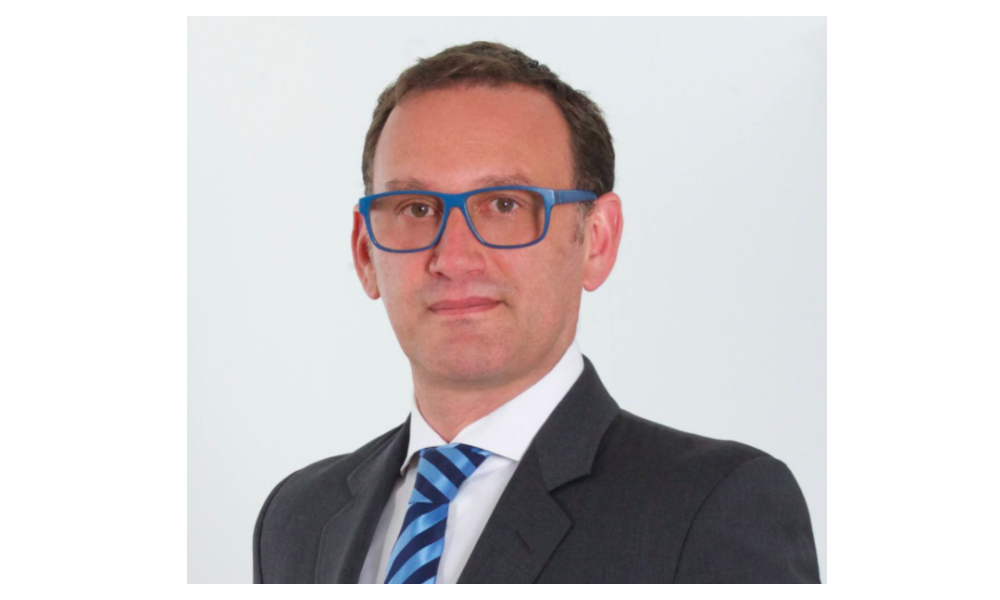Luxury
Inside the Boardroom: Eran Polack
By
Joseph Richter

Eran Polack, CEO at HAP Investments, joined the Real Estate Daily Beat for an interview. We discussed his early development experience in Eastern Europe, the Manhattan condo market, construction costs in this environment and other interesting topics.
Daily Beat: What are your thoughts on the condo market in New York City?
Eran Pollack: I think that after a very long time, the condo market seems healthy again. Sales at the Maverick on West 28th Street are very strong.
If you combine the resurgence in the market with how difficult it has become to build rentals in the city, I think condos are the only options for development unless you’re 100% affordable. Even a 70-30 project with a tax abatement is very challenging in this environment.
With condo inventory going down significantly and demand where it is, condo land deals are also much more attractive.
Daily Beat: Can you discuss the recent sale of your 49% stake in the Maverick Chelsea to your JV partner Daiwa House Group?
Eran Polack: We partnered with Daiwa House – a very large Japanese real estate company – and they wanted to hold onto the rentals, so they bought us out. We are still managing the project for the next few years. It was a win-win deal where everyone achieved their goals. Our investors typically like exiting an investment once its complete, while our Japanese partner has a longer-term outlook.
Daily Beat: When I was raising money from another venture, we met extensively with Japanese investors. The cultural experience was fascinating. How have you found it?
Eran Polack: We have an amazing broker. She’s Chinese and lives in Japan – she’s still working with us even after getting paid her commission. She helps with cultural differences and still comes to meetings.
I personally get along with them very well. We have a good relationship and I’ve learnt a lot about Japanese culture by reading books. Daiwa is also a very open minded company with people that also understand other cultures.
Daily Beat: How long did it take to get the deal done?
Eran Polack: It took a full year. They are very loyal and stand behind their word.
Daily Beat: When you are underwriting a new condo deal and projecting hard costs, how would you compare the costs today versus before the pandemic?
Eran Polack: I think it’s a very interesting question and a great topic. The buzz word now is inflation, but there are many things that are canceling each other out. In areas like materials, prices have certainly increased; however, there are a lot of GC’s and sub contractors that don’t have jobs and are available.
If you really need to build something and it’s ready to get out of the ground, you can still build it at the same price as 20 to 24 months ago. Maybe some components in your project will be more expensive, but others are cheaper and things will cancel each other out.
Daily Beat: So even labor shortages in the broader economy, you’re saying when it comes to the GCs, everyone’s looking for work, so developers have leverage?
Eran Polack: GC’s are doing projects for less profit. You look around New York and there aren’t so many new projects coming out of the ground.
Daily Beat: Are you still seeing foreign investors? Who’s the buyer been in Manhattan recently?
Eran Polack: I’m very bullish. There’s been very strong absorption in the past six months – inventory is going down and New York is coming back. We see a lot of people that buying to live in the city, not just foreign investors. That’s why I was using the world healthy because eventually a strong market is one where people are buying to live in. That’s the purpose of condos or co-ops. I’m not opposed to investors buying an apartment, but I do think it’s a healthier situation when you have enough buyers who want to live in apartments because they are willing to pay more. An investor doesn’t really care as long as the investment is good, but someone that wants to live in the building will pay a better price than an investor.
Daily Beat: And I guess that brings me to 65 Franklin in Tribeca. I know you landed $94 million in financing from G4 in 2019. How’s that project coming along?
Eran Polack: We are working on the foundation and making a lot of progress. I think it’s going to be an amazing project and be a great addition to Tribeca. The market is right there for us to sell the product we are building in that neighborhood.
Daily Beat: Have you landed financing for your planned Jersey City project yet?
Eran Polack: We are negotiating with four groups on equity investment and financing. We are working with Noble Construction on the CDs and GMP etc… with plans of trying to get into the ground.
You see what’s going on in the neighborhood! Kushner finished their building and it’s renting extremely well – they’ve already started their third building. We hope to start construction in a year. There are a lot of developments in the area, but the fundamentals for real estate are so strong there. There’s an amazing train station – the easiest commute that you can have to Manhattan and I think it’s smoother than anywhere in Brooklyn. Our project is a thirty second walk to the station.
The Kushner project has been so successful because you’re getting brand new apartments with so many amenities – everything you can imagine – with great transportation and it’s half the price of Manhattan. It takes like 10 minutes to get to the World Trade Center.
Daily Beat: Can you speak to your earlier experiences developing in Eastern Europe like Ukraine?
Eran Polack: Each market is extremely different. I was developing in those places about 15 years ago and a lot has changed. When I was developing in Eastern Europe in like 1996, it was not so long after communism fell, so there wasn’t any local competition. A few international fans and individual smaller developers like me were involved. The market was created in those years. You couldn’t get a mortgage in those countries back then.
The market was very different and I think it was much easier with much smaller numbers. The best apartment in Budapest went for $100,000 to $200,000.
Daily Beat: How about the Israeli market?
Eran Polack: Israel is a completely different market. It’s very structured and most sales are done on paper before you even start construction. When you finish a project and hand the keys to the buyers, usually 80% to 90% of the building is already sold – some of the time even 100%. The margins are lower, but the equity that is needed to do a project is also much less than what you would need in New York.
Daily Beat: There’s not as much risk earlier on because so much is pre-sold?
Eran Polack: A lot is pre-sold and you can use the money from the sale back into the project.
Daily Beat: When you were out in Eastern Europe, were these projects for tourists or was it actually for residents of the country?
Eran Polack: I was building for residents of the country. For example, many Hungarians during Communism left Budapest and lived in Austria or somewhere in the West. When Communism fell and things started to normalize, a lot of them came and wanted to buy an apartment in the city. It was an amazing market back then because those people were living in the west and were making and saving money.
They could afford what we were selling and had a different perspective on real estate. I also developed a 110-unit, short-term rental project that was geared for corporate employees who were opening and sending people to Eastern Europe.
Daily Beat: Did you know someone in the government? How did you get started there?
Eran Polack: I started buying from individuals who were living in apartments and when communism fell, individuals got to own their own apartment. As a result, there was a massive opportunity to buy buildings with four apartments from each individual owner and then you’d demolish and build 10 luxury apartments.
Daily Beat: It reminds me of what Bill Brodwer did with Hedge Funds! His book Red Notice is a great read! Are you still doing projects there?
Eran Polack: I’m hundred percent focused on New York and Jersey now. I moved with my family nine years ago and have four kids. We have officers in Israel, but mostly for investor relationships and things like that. I’m involved in Tel Aviv on a very small scale.
Daily Beat: Which neighborhood in New York do you think has the most untapped potential?
Eran Polack: Mott Haven in the Bronx is will eventually become a very strong market. Long Island City has gone through phases of hype, but I really it too. But I’m most bullish on Jersey City!
Daily Beat: Why haven’t there been so many bond issuances in the Tel Aviv Stock Exchange this year? Is it simply because the exchange rate of the Shekel makes it expensive?
Eran Polack: I think the market in Israel got hit with a lot of issues and problems. I’m not sure that they had enough knowledge to do some of the deals they were doing. There’s a lot that’s going to be changed in the near future.
Right now, they are considering changing the whole grading system, which will make it even more difficult. I think there are a few companies that did well like Silverstein and Extell. People are still raising money, but it’s much more quiet.
*The interview has been edited and condensed for clarity.





